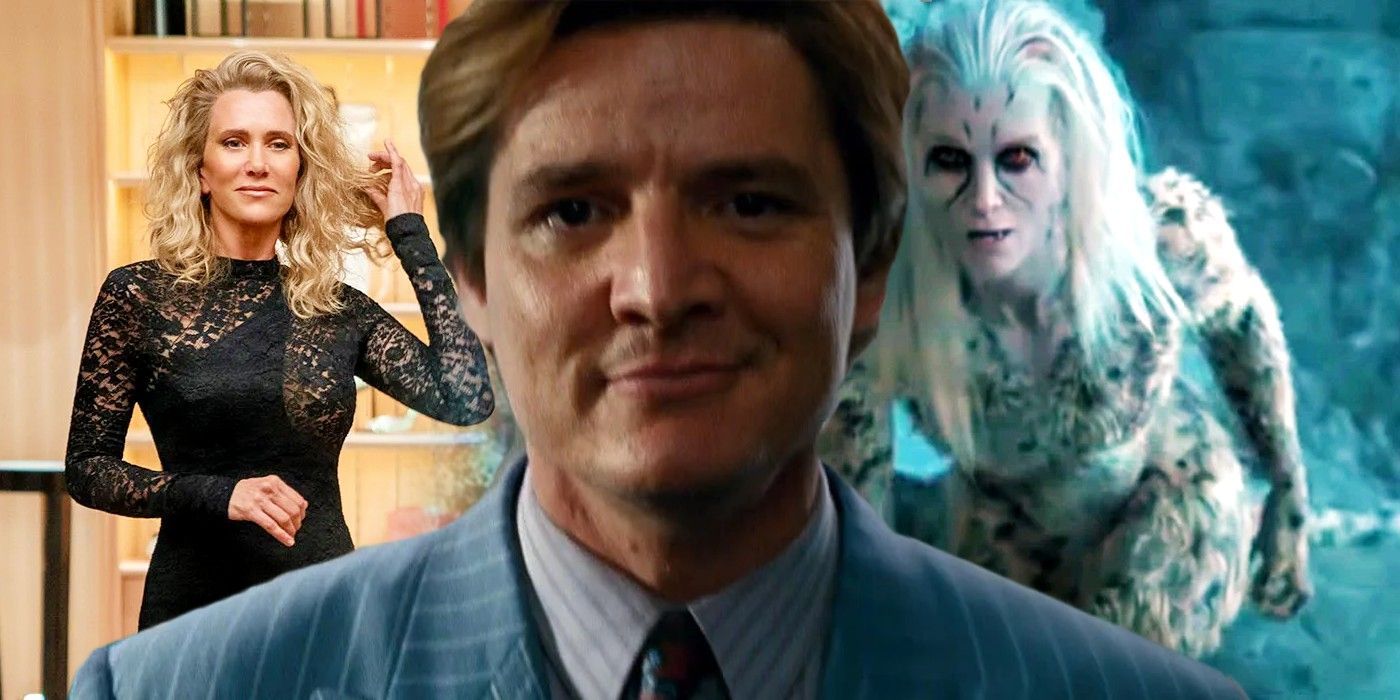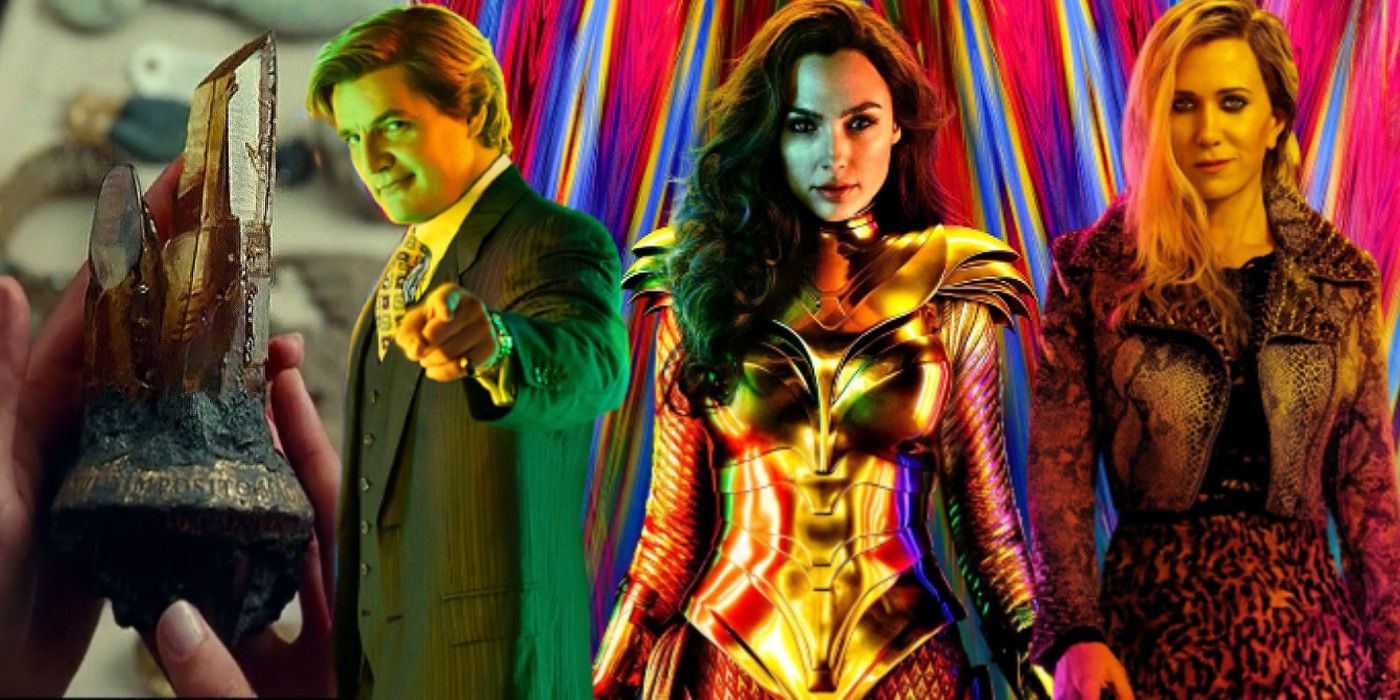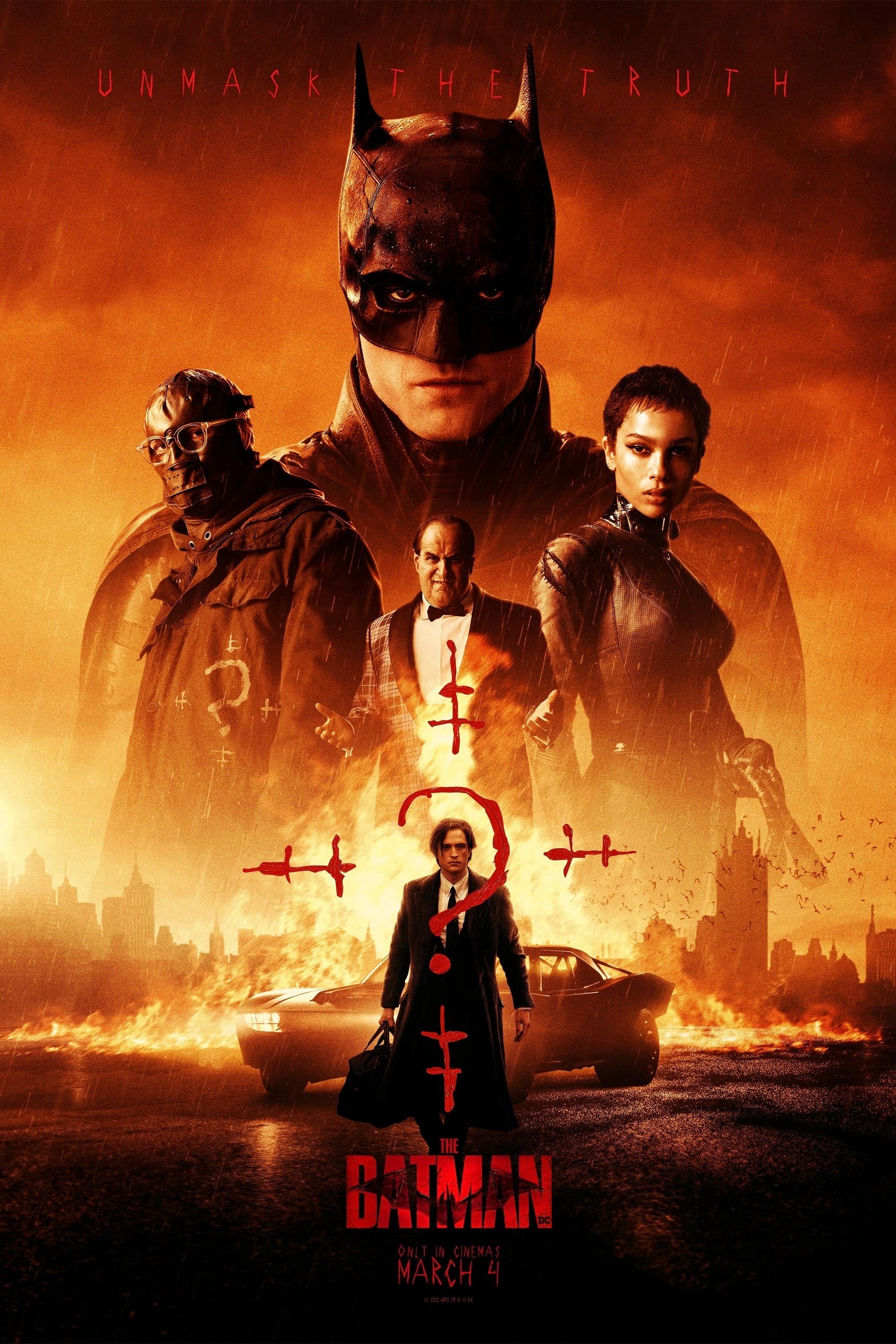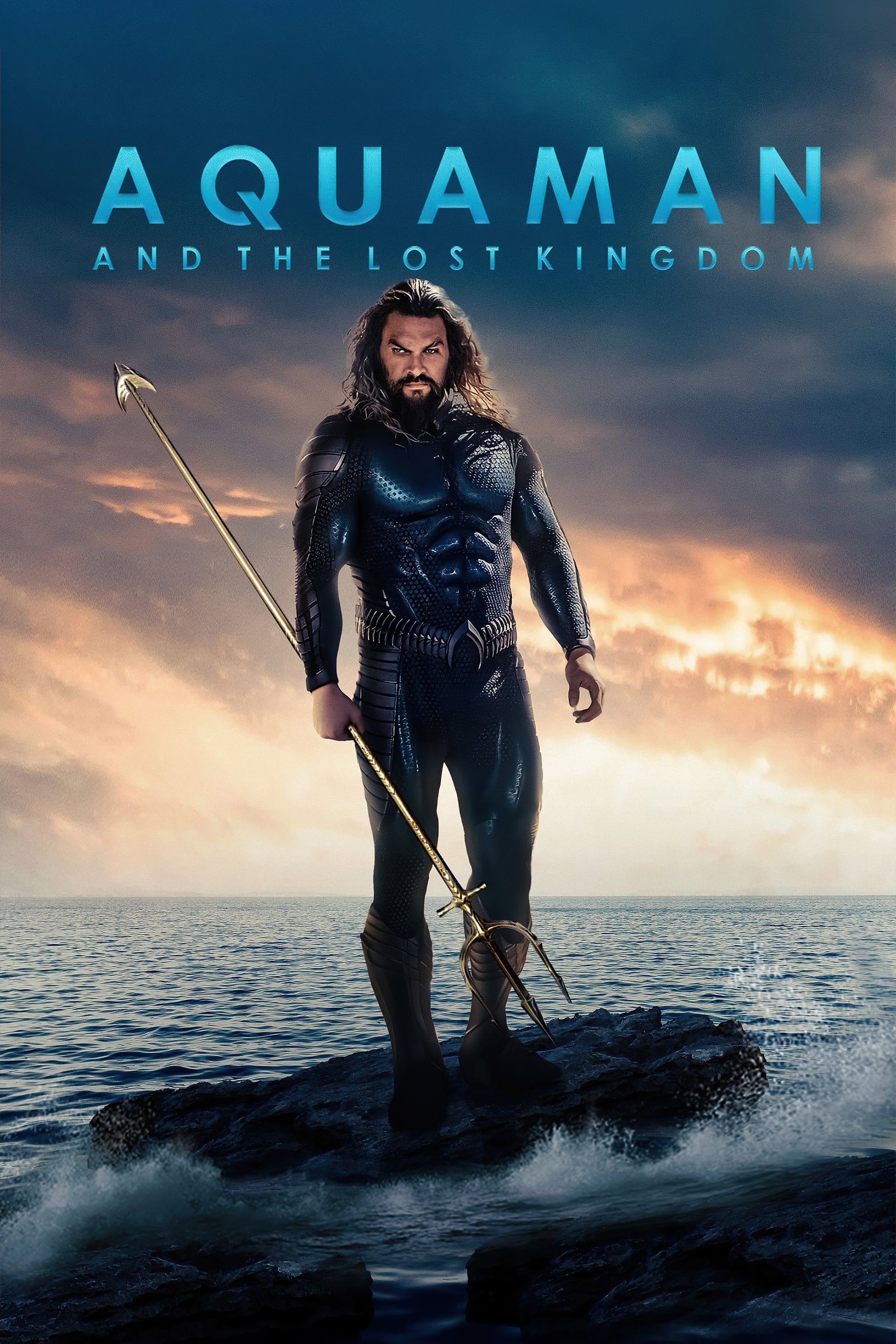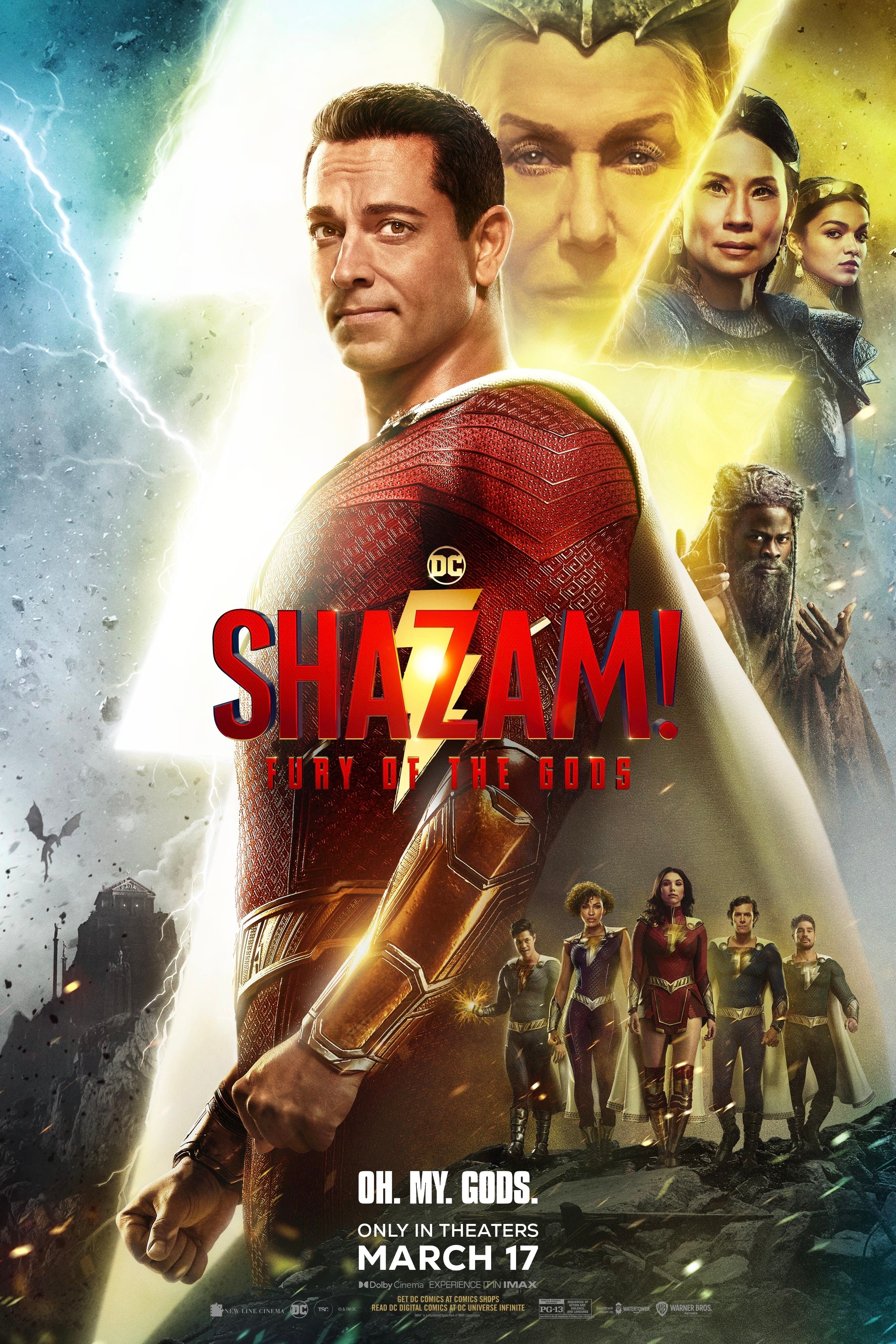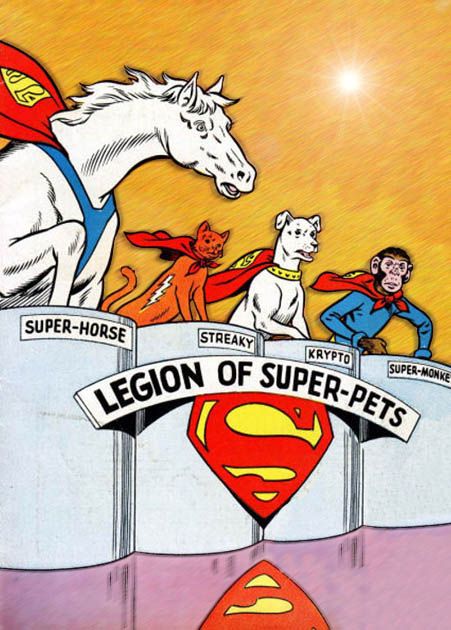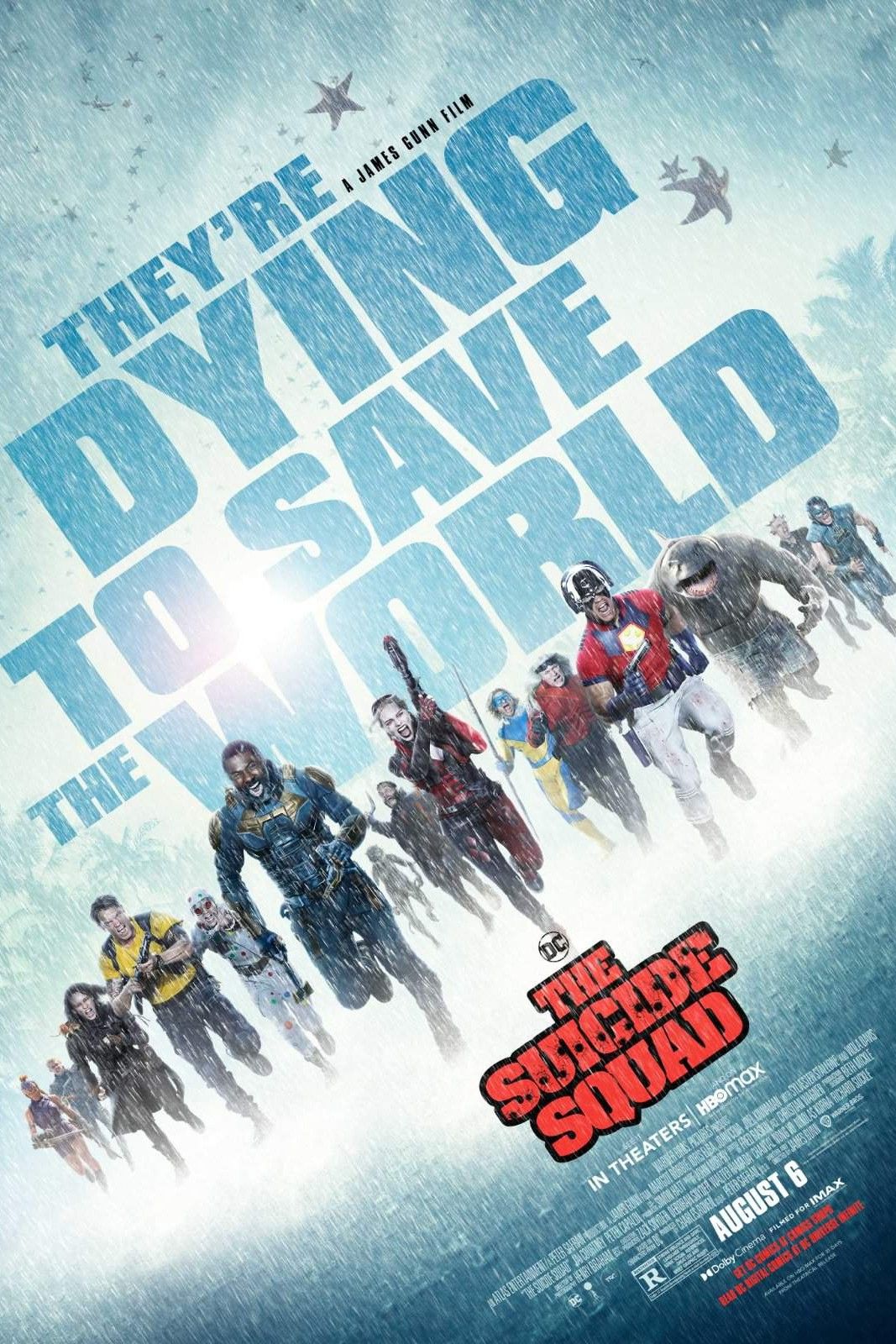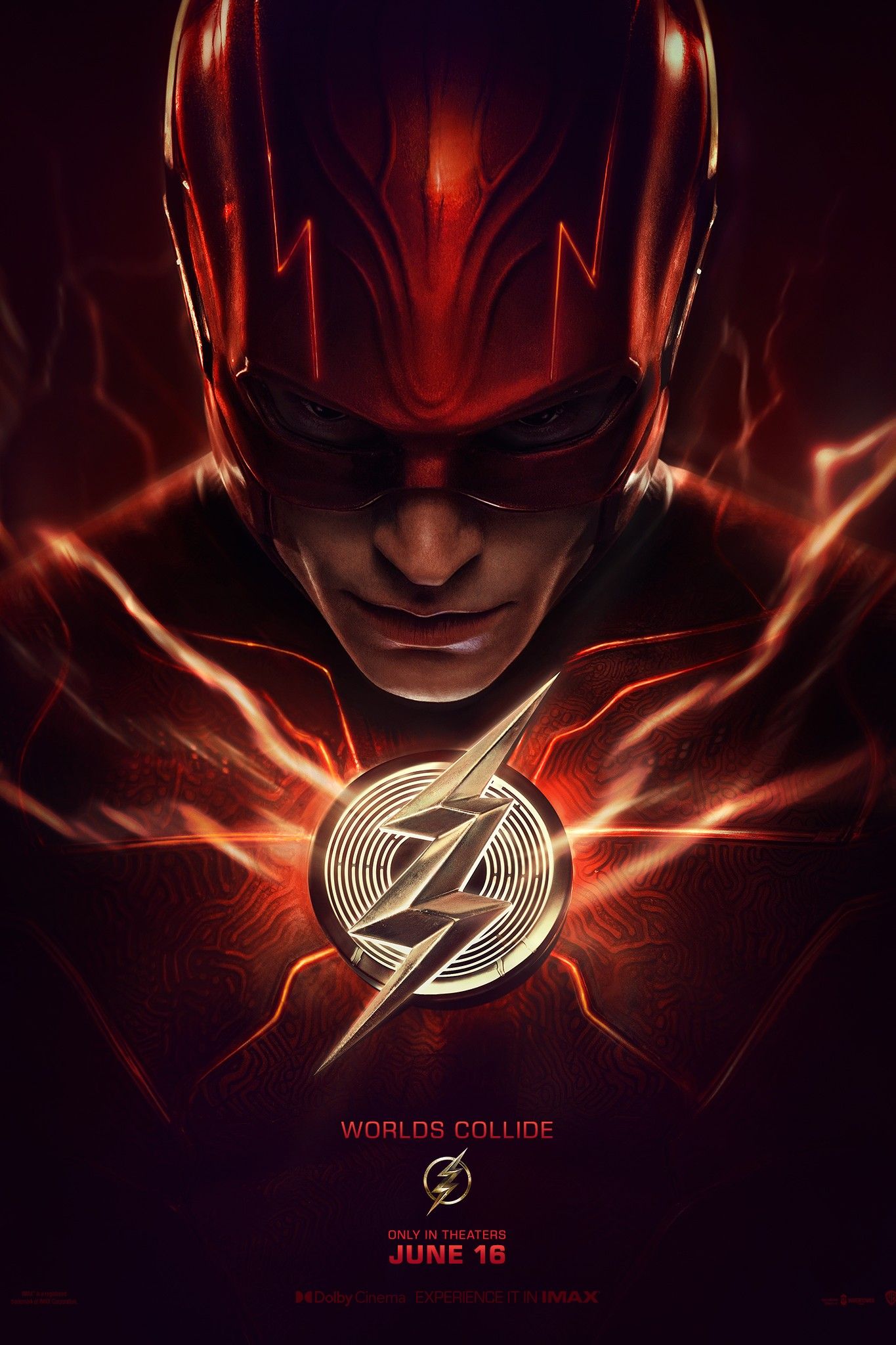Wishes are at the heart of Wonder Woman 1984, but when Barbara Minerva wishes to become Cheetah, she breaks the Dreamstone's governing logic and creates a plot hole. The latest installment of the mighty heroine's film series pits Diana against Max Lord and a Monkey's Paw wish-granting artifact. As Barbara navigates this conflict, she's consumed by greed, using wishes to transform herself into an apex predator. But this wish goes against the stone's single-wish rules, calling into question not only its limits, but the stakes of the film itself.
Over the course of Wonder Woman 1984, characters wish on the Dreamstone, getting their heart's desires but at a terrible cost. Diana wishes for her lost love Steve Trevor, Barbara wishes to be noticeable and strong like Diana, and Max Lord wishes to become the Dreamstone itself, kicking the story into action. As more and more people use Lord to grant their wishes, or rather, as Lord uses people's wishes to achieve his ambitious plot, the world is thrown into chaos. It's only in the final showdown when Diana implores humanity to renounce their wishes that stability is restored.
But the Dreamstone is no mere wish-granting factory: it ostensibly obeys certain in-world rules. The stone only grants one wish per customer, the wish must be said out loud while making physical contact with the stone, and the stone decides what it takes in exchange for granting your wish, similar to the famous short story "The Monkey's Paw." Barbara, among the first in the film to make a wish onscreen, acquires Diana's strength and allure in exchange for her kindness. But later, having united with Dreamstone-Max, she makes a second appeal: she wants to become an apex predator. And so, she becomes Cheetah in Act III, in spite of having already used her wish in Act I. In so doing, she breaks rule number one of the Dreamstone's operational logic.
Barbara getting a second wish has been pointed to by critics as one of the film's many problems, as it not only introduces a Wonder Woman 1984 plot hole, but it undermines the film's stakes. Earlier in the movie, Lord enlists an employee's help to get an audience with the President, but he's unsuccessful when he discovers the employee's wish had already been spent days earlier on a Ferrari. Of greater importance, however, is Lord's scene with his son Alistair. The strained relationship between father and son redeems Lord as a well-intentioned villain. All he's doing to attain power amounts to his desire for his son to have a good future. But in an emotional scene, Alistair unwittingly uses his one wish for his father's success, much to Lord's dismay. If Lord could simply provide him a second wish, the emotional stakes of that scene are rendered moot.
Can Lord change the terms? He is the physical Dreamstone itself, after all. In the climax, Max Lord offers to Diana a chance to bring back Steve, remarking "I am a forgiving man." This would suggest that, as the Dreamstone, he sets the terms himself. So why, then, wouldn't he be able to do the same for an audience with Reagan, or for his cherished son? Lord's wish to become the Dreamstone could have reset the stone's wish-counter, starting anew anyone's wish record just as the stone is remade anew in the form of Max. After all, Barbara got one wish on the stone, and one on Max, just as Diana got one on the stone and was offered one on/by Max. It's also possible Max Lord was exploiting a loophole that let him forward what he took in exchange for a wish to Barbara. Perhaps overthinking these questions misses the point of a blockbuster superhero film like Wonder Woman 1984. Even with this plot hole, it delivers on its promise of an exciting, wild, and hopeful film apt for these tumultuous times.

